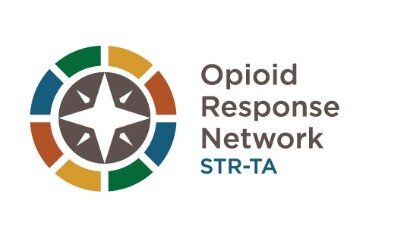Training and Technical Assistance Resources
X-Waiver Training Resources
For Physicians, Nurses and Physician Assistants
Providers Clinical Support System (PCSS)
Free X-Waiver training for Physicians (MD/DO), Nurses (NP/CNM/CNS/CRNA) and Physician Assistants (PA).
Required training hours: 8 hours for Physicians and 24 hours for Nurses and Physician Assistants
American Society of Addiction Medicine (ASAM)
ASAM: Treatment of Opioid Use Disorder Course (X Waiver Course)
Target audience: Physicians, Nurse Practitioners, Physician Assistants, Clinical Nurse Specialists, Certified Registered Nurse Anesthetists, and Certified Nurse Midwives
ASAM Members (in training) receive complimentary access to the 8 hour online
American Academy of Addiction Psychiatry (AAAP)
Other Resources
Great Lakes Addiction Technology Transfer Center (ATTC)
The Great Lakes ATTCs offers training and technical assistance in implementing MAT, drawing on the experience of expert coaches as well as resources produced by the ATTC Network, SAMHSA, NIDA, ASAM, the American Academy of Addiction Psychiatry, and NIATx.
Northwest Addiction Technology Transfer Center Network (NATTCN): Telehealth Video Demonstrations
For addiction workforce members considering the integration of new therapeutic methods into their daily practice, clinical demonstrations provide models for one’s own future behavior. With the continuing transition to use of telehealth, demonstrations specific to how useful treatment and recovery practices can be delivered via telehealth modality may be similarly useful to those in the addiction workforce who are navigating this terrain.
The Northwest ATTC hopes these two sets of video demonstrations and accompanying resources, focused on telehealth delivery of Evidence-Based Practices (EBPs) and Medications for Opioid Use Disorder (MOUD), serve as a useful support to your efforts to adopt new practices and apply them in telehealth contexts.
Neuroscience Education Institute (NEI) CME Podcast: Overcoming Barriers and Challenges to the Treatment of Opioid Use Disorder
Opioid addiction, abuse, and overdose have all grown to epidemic proportions in the United States as well as worldwide in recent years—such information is no longer up for debate. With an estimated 400,000 persons using illicit opiates each month, and another 4 million reporting use of prescription pain relievers for nonmedical purposes, in the United States alone, the debate now surrounds how best to treat those individuals suffering from opioid use disorder (OUD). In the past few years, there has been growing evidence for the efficacy of medication assisted therapy (MAT) for the treatment of OUD. However, there are still many challenges. Questions arise such as: What sort of training does a prescriber need to undertake in order to be able to prescribe medications for the treatment of OUD and how is this a barrier to treatment? How are the billing procedures for MAT challenging for clinicians who are prescribing? In this CME NEI Podcast, Dr. Larissa Mooney answers these questions and more on MAT for OUD.
Substance Abuse and Mental Health Services Administration (SAMHSA)
The Substance Abuse and Mental Health Services Administration (SAMHSA) is the agency within the U.S. Department of Health and Human Services that leads public health efforts to advance the behavioral health of the nation.
Opioid Response Network (ORN)
The State Targeted Response Technical Assistance Consortium (STR-TA), a grant funded by the Substance Abuse and Mental Health Services Administration (SAMHSA), was created to provide education and training at a local level to provide evidence-based practices in the prevention, treatment and recovery of opioid use disorders. In response, the American Academy of Addiction Psychiatry and a large coalition of national professional organizations was awarded the grant to lead this STR-TA initiative and created the Opioid Response Network. This network provides local training and education free of charge for specific needs at a community level to address this health crisis. The Opioid Response Network team stands ready to assist you.
National Clinician Consultation Center (NCCC) Substance Use “Warm Line”
The NCCC offers free and confidential clinician-to-clinician telephone consultation focusing on substance use evaluation and management for primary care clinicians through the Substance Use Warmline at (855) 300-3595. Consultation is available Monday through Friday, between 9 a.m. and 8 p.m ET, from addiction medicine-certified physicians, clinical pharmacists, and nurses with special expertise in pharmacotherapy options for opioid use. Voicemail is available 24-hours a day.









